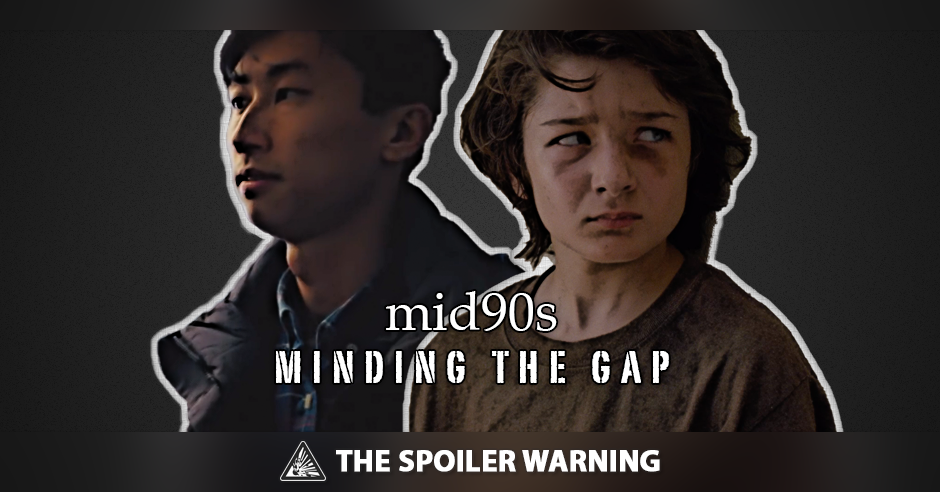I knew them as The Bad Kids. Huddled around the stairs in the back of the chapel, taking turns doing flips off some precarious ledge. Long matted hair over scratches and acne; Converse, army jacket, tattered jeans. Popular in a narrow sense — within certain circles, to a “certain sort” of girl. Hints of a rocky home life: her laminated smile at the parent teacher conference, the truck’s don’t-make-me-ask-twice idling out front, an older sibling that looks vaguely stretched out or hollowed. Aggressive but never threatening. Crass but never cruel. Under a teacher’s stare: disingenuous “yes sir”s, side-eyes and snickers, hands in back pockets waiting out the clock. Out of earshot: brown paper bags with mysterious contents, punches and shattered glass. Sexual references I was too prudish to get, cueing laughs that would strain into gurgly. “Gay” and “emo” hurled as insults, and yet: skinny dips, Tom DeLonge, nut punches, wrestling, sweaty yell-sung anthems and acoustic power chords. Both hard and not hard, “cool” until suddenly not. There was something pure and unselfconscious in their messiness; a bond that, while temporary and conditional, bridged traditional faultlines more deftly than most. Class and ethnicity, machismo and charisma, looks, temperament, academic success — wasn’t it all just a canvas for bruising?
Many incredible slice-of-life films have been devoted to rowdy youth: think Andrea Arnold, Harmony Korine. They function for me as anthropological studies, burrowing into a specific chaos I know nothing about to reveal something universal and potent. What strikes me about Mid90’s and Minding the Gap, though, is how authentically they dissect subjects I’m both versed in and stacked with baggage against. And how well they force me to find beauty despite it. Like a skateboard-related metaphor I’m too dweeby to come up with, they catapult from familiar ground to searing emotional heights in one fluid motion, tilting my perspective on the upswing. They guide me away from detached observation, to an empathy I didn’t know I had.
Both films leverage similar material (a small group of male skateboarders with best-left-unmentioned family lives) to prod at similar themes (cycles of abuse, repression, breaking free). But they veer apart in interesting, complementary ways. Jonah Hill’s directorial debut Mid90’s (4/5) is a quite good movie about the day-to-day grind: moments of wordless connection or sudden calamity, and the way some inciting event (tiny or grand) can bring the former crashing into the latter. To use his words, it’s a “jagged” movie, and the abrasive way it tumbles between moods (keenly observed details, first-film-going-way-too-big dramatic arcs) speaks volumes about the headspace of its leads: what drives them, and what they’re trying to expel with all that flailing. If it’s about the present “why”, Minding the Gap (5/5) is about the “what next”: what will they tear up when a knee doesn’t cut it? Bing Liu’s documentary follows three friends (himself included) who, having skated together as teenagers, feel their 20something lives start to diverge. All saw skateboarding as a means of escape, having been hurt in similar ways. But their choices — how they grow up and respond to past trauma — couldn’t be more different: one tries to isolate it, one learns to contextualize it, and one finds himself paying it terribly forward. It’s tempting to compare this to the Up documentary series, but that doesn’t do justice to its sheer presence. This is a film that requires extraordinary emotional balance — refusing to demonize or excuse its subjects — and makes it seem weightless, natural. It’s gorgeous, and human, and breathtaking in scope, and to say any more would only dull it.
Now I keep coming back to The Bad Kids. What sharpened them? Did they ever sand it down? What about me and my own jagged edges — my casual cruelties, sense of superiority, ownership — cushioned by skin-deep piety? Outside: disingenuous “love the sinner”s, bowed eyes, judging. Inside: air punches and shattered glass. At least the rowdy ones had the courage to make it literal. With the camera pointed at the front of the chapel, maybe my own ugly is even harder to root for. Or maybe it’s just another tilted perspective, waiting to be sanctified by a similarly neat trick. We all had our chaos to deal with. Some of us waited for years to unpack it. Others scraped it against metal to see if it would spark.
Chris and I get a little nostalgic, but I really enjoyed recording this episode of the podcast.
